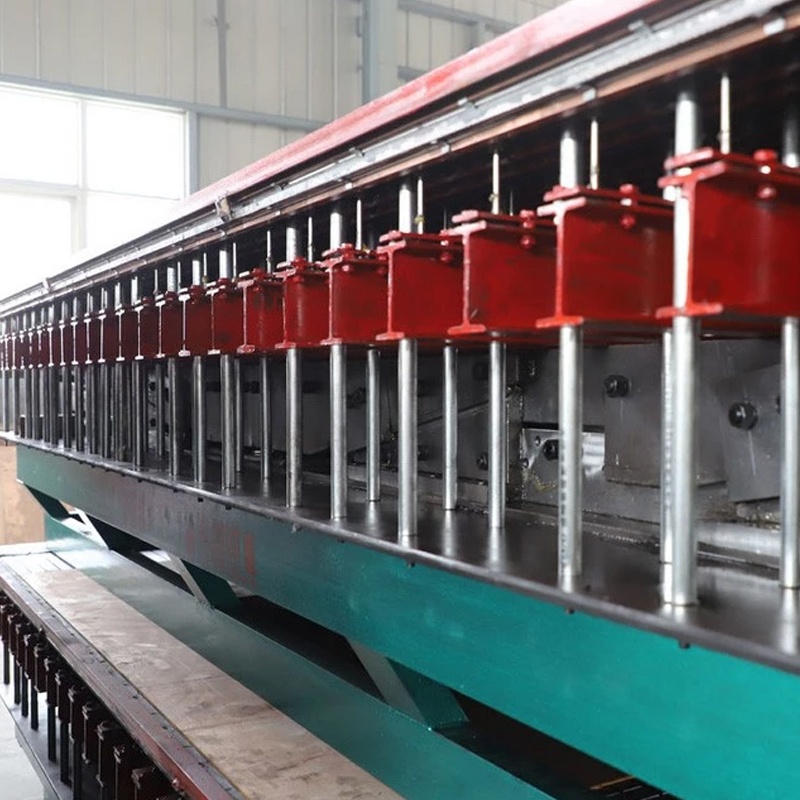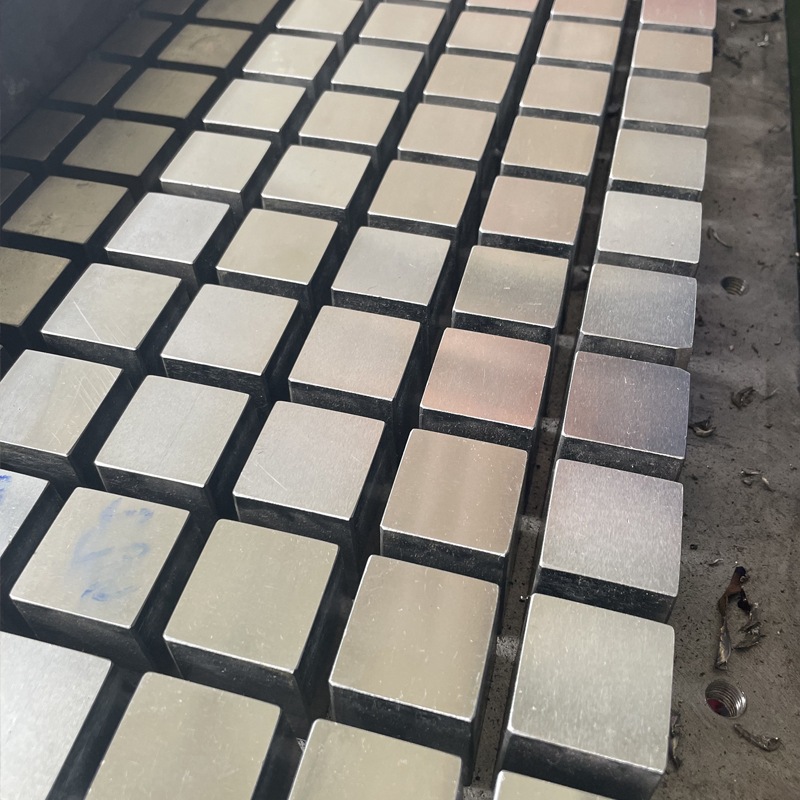
Precise machine calibration proves essential for top-quality FRP/GRP gratings. It guarantees correct dimensions, strong structure, and lasting performance. This guide examines calibration’s vital function. It also details improvement methods. Finally, it shows how calibration affects steady manufacturing results.
What Role Does Machine Calibration Play in FRP/GRP Grating Quality?
For FRP/GRP grating makers, machine calibration directly shapes product excellence. It also ensures steady output and long-term dependability. Proper calibration makes certain production equipment works within set limits. This allows exact duplication of results across many production runs.
Importance of Correct Dimensions in Molded and Pultruded Gratings
Correct dimensions form the basis for both molded and pultruded FRP/GRP gratings. Standard mesh and panel sizes must stay exact. This ensures proper fitting, even load sharing, and structural soundness. Standard GRP FRP grating sizes (mold sizes) include common layouts. Examples are 38×38 mm mesh with panels sized 1220×3660×38 mm. Differences from these standards can cause fitting problems. Performance issues may also appear during real-world use.
Effects of Misalignment and Size Errors on Final Product Strength
Misalignment or size mistakes during molding can create uneven fiber spread. Resin may pool in places. Hollow spaces might form inside the grating structure. These flaws weaken mechanical power. They also lessen resistance against weather and chemicals. Wrong machine settings might harm demolding actions too. This raises the chance of surface marks or shape bending.
Link Between Machine Calibration and Grating Longevity
FRP/GRP grating toughness connects tightly to production exactness. FRP grating lasts exceptionally long. It handles severe weather conditions well. These include strong sunlight, hot and cold extremes, and physical wear. But this toughness requires steady material thickness and even structure. Only properly calibrated machines can achieve this.
Hebei Aoliande Chemical Equipment Co., Ltd. tackles these problems effectively. Their FRP/GRP Molded Grating Machines use carefully chosen parts. Ejector rods, for example, come from ground steel pieces. These have slick finishes for solidness and scrape resistance. This design ensures accuracy every production cycle.
How Can Calibration Methods Improve for FRP/GRP Grating Machines?
Good calibration plans do more than ensure product correctness. They cut machine downtime and material loss too. Making things better involves watching important measures systematically. Advanced tools help greatly here.
Key Measures to Track During Calibration
Important measures include hydraulic pressure settings, mold heat levels, ejector rod positions, demolding timing steps, and platen flatness. For instance, mold heat changes happen through rectangular copper pipes. These make temperature shifts very quick. So heat steadiness becomes critical for resin curing quality.
Suggested Timing and Ways for Calibration Checks
Regular calibration should happen monthly under normal work conditions. But after big repair jobs or part swaps—like hydraulic pump service or mold changes—immediate recalibration is essential. Using test panels or trial molds checks size correctness. Do this before restarting full production.
Tools and Gear for Very Exact Calibration
Digital dial gauges help greatly. Infrared heat guns check mold surface temperatures. Hydraulic pressure readers are vital. Laser leveling systems confirm platen flatness. Automatic control checks are common tools too. These instruments help workers find mistakes fast.
Hebei Aoliande Chemical Equipment Co., Ltd. aids better calibration through smart machine engineering. Their machines use hydraulic parts from China-Japan partnerships. These parts last very long. They perform reliably through many calibration cycles.
Which Factors Shape FRP/GRP Grating Longevity?
Durability depends on more than just design. Raw material choice matters greatly. So does weather exposure. How well the grating meets weight support needs is key too.
Material Makeup and Resin Quality Checks
Top-quality resins containing UV blockers boost life outdoors. Fiber direction is crucial too. Straight-line fiber arrangement increases pulling strength. Cross-hatch patterns give better shock resistance. Steady mixing ratios from calibrated mixers keep resin even during production.
Effect of Weather Exposure on Structure Soundness
FRP grating never rusts. It doesn’t decay or break down over years. But long contact with intense sunlight or strong chemicals can still damage its surface. This happens if protective layers go on unevenly. Poor machine control during resin spreading makes this risk worse.
Effect of Weight Support Needs on Design Details
Gratings for factory walkways differ from light-duty platform versions. They need different bar thicknesses and mesh patterns. Exact molding ensures products meet specific load rules. This avoids costly over-building. It also prevents dangerous under-building.
Hebei Aoliande Chemical Equipment Co., Ltd. lifts durability results through a whole-system method. Their FRP molded grating line includes several machines. Mixers, hydraulic pumps and cooling towers work together. This supports thorough quality checks during all material handling stages.
How Do Quality Checks Boost Manufacturing Steadiness?

Manufacturing steadiness happens when every piece meets set standards without variation. Strong quality assurance systems drive this outcome. These systems fit into both process planning and finished product checking.
Live Checking Methods for Constant Quality Watching
Sensors track mold filling speeds. Heat-sensing cameras watch curing temperatures. Movement sensors follow ejector rod travel. These give instant feedback during operation. They signal problems right away.
Finished Product Test Rules for Strength and Chemical Resistance
Finished gratings face bending tests under ASTM D790 rules. Salt spray tests follow ASTM B117 standards too. These confirm rust resistance claims. Such checks matter most for sea or chemical plant uses. Failure there brings serious safety risks.
Hebei Aoliande Chemical Equipment Co., Ltd. builds in quality assurance. They supply complete frp grating machines. Production technology comes if needed. This lets makers start quality checks that match machine abilities immediately.
Why Does Worker Training Matter for Machine Precision?
Even advanced machines need skilled human watchfulness. This keeps them working best over time. Good training bridges machine potential and real-world results.
Function of Expert Technicians in Setup and Care
Technicians must know how to read calibration numbers correctly. They need to make mechanical fixes properly. This is especially true for complex elements. Take stripping plates joined with flexible links. These ensure smooth up-down movement during demolding.
Common Worker Mistakes That Hurt Calibration Accuracy
Mold setup misalignment happens often. Wrong heat settings from uncalibrated thermostats occur too. Over-tightened bolts or incorrect hydraulic pressures bring distortions. These build up if not found quickly.
Ongoing Learning Plans for Better Work Efficiency
Regular classes on new machine features help workers stay updated. Training on changed calibration steps is useful too. Practice modules using simulations improve response times. This helps during sudden machine behavior shifts.
Hebei Aoliande Chemical Equipment Co., Ltd. backs worker skill growth. Their machines feature straightforward operation. Installation and maintemance stay simple. This shortens the learning time. It also supports exact results for the long term.
How Does Hebei Aoliande Chemical Equipment Co., Ltd. Aid Top-Quality FRP/GRP Making?
As FRP/GRP grating machine specialists, Hebei Aoliande Chemical Equipment Co., Ltd. combines engineering precision with custom tech advances. Their machines include clever features. Automatic demoulding systems use 10t hydraulic power. Fast heating comes from water or electric sources. Anti-rust molds use polished 45# steel. Plus, they give full technical help with their equipment sets. This ensures customers get best results from setup to large-scale production.
What Problems Come From Skipping Machine Calibration in FRP/GRP Making?
Ignoring calibration causes serious later issues. These affect product strength, cost savings, and customer happiness. Industries using structural composites feel these effects widely.
More Wasted Products From Size Mistakes
Uncalibrated machines often make panels beyond allowed limits. This means higher scrap rates. Profits fall as a result. Rework needs delay deliveries too.
Greater Repair Costs From Uncalibrated Machine Damage
Unbalanced forces from misaligned parts wear parts faster. Hydraulic cylinders suffer. So do platen bearings. This forces more frequent part changes. Proper calibration avoids this extra cost.
Danger of Structure Breakdowns in Actual Use
Wrongly cured resins from heat changes might cause layer separation. This happens under heavy weight. It creates dangerous situations. Especially where gratings serve as high walkways. Corrosive spots like wastewater plants face this risk too.
Final Thoughts
Making top-quality FRP/GRP gratings needs a multi-part plan. Here, exact machine calibration forms the base. Correct dimensions matter greatly. So does lasting toughness under harsh conditions. These elements connect through careful control of machine settings. Using modern tech inside Hebei Aoliande Chemical Equipment Co., Ltd. systems helps greatly. Makers get steady output. They also cut operational risks at every production stage.
Common Questions About FRP/GRP Grating Machine Calibration
How often should standard FRP/GRP grating machines get calibrated?
Monthly checks work well under normal use. But recalibrate right after major repairs. The same goes for key part replacements.
Can automatic calibration systems fully replace manual checks?
Automation boosts speed a lot. But human checks stay necessary. They spot small mechanical issues digital systems sometimes miss.
How does bad calibration change resin spread during grating making?
Uneven heating from calibration errors disrupts resin flow. So does mold misalignment. This creates weak areas. They threaten structural soundness after curing.





